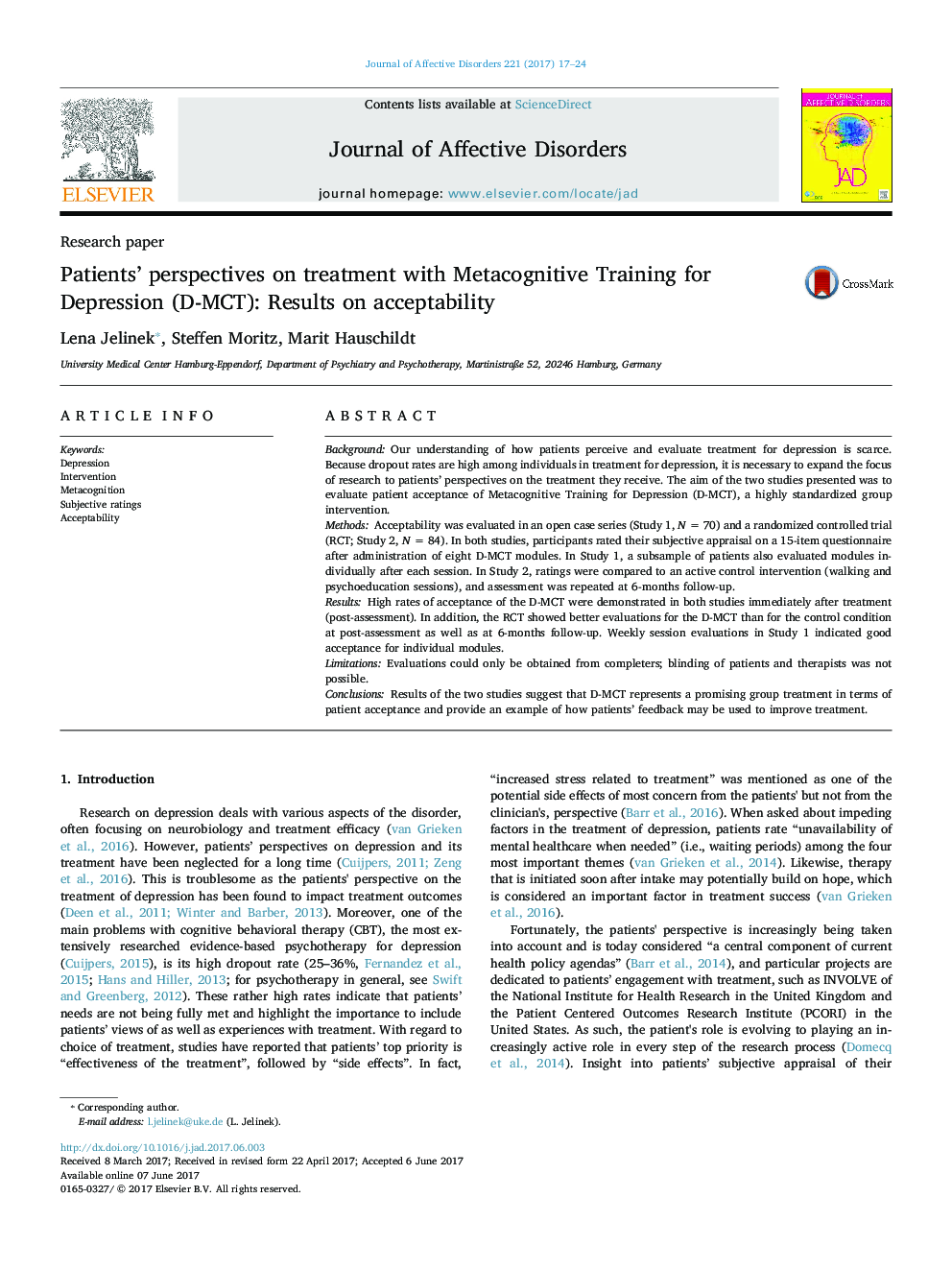| Article ID | Journal | Published Year | Pages | File Type |
|---|---|---|---|---|
| 5721986 | Journal of Affective Disorders | 2017 | 8 Pages |
â¢Patient acceptance of the D-MCT was high.â¢Patients' positive evaluations of D-MCT were reliable and long lasting.â¢Attributes of the D-MCT (e.g., fun) were positively reflected by patients' feedback.â¢Individual modules were evaluated positively.â¢Patient's views may be used to improve interventions and reduce dropout.
BackgroundOur understanding of how patients perceive and evaluate treatment for depression is scarce. Because dropout rates are high among individuals in treatment for depression, it is necessary to expand the focus of research to patients' perspectives on the treatment they receive. The aim of the two studies presented was to evaluate patient acceptance of Metacognitive Training for Depression (D-MCT), a highly standardized group intervention.MethodsAcceptability was evaluated in an open case series (Study 1, N = 70) and a randomized controlled trial (RCT; Study 2, N = 84). In both studies, participants rated their subjective appraisal on a 15-item questionnaire after administration of eight D-MCT modules. In Study 1, a subsample of patients also evaluated modules individually after each session. In Study 2, ratings were compared to an active control intervention (walking and psychoeducation sessions), and assessment was repeated at 6-months follow-up.ResultsHigh rates of acceptance of the D-MCT were demonstrated in both studies immediately after treatment (post-assessment). In addition, the RCT showed better evaluations for the D-MCT than for the control condition at post-assessment as well as at 6-months follow-up. Weekly session evaluations in Study 1 indicated good acceptance for individual modules.LimitationsEvaluations could only be obtained from completers; blinding of patients and therapists was not possible.ConclusionsResults of the two studies suggest that D-MCT represents a promising group treatment in terms of patient acceptance and provide an example of how patients' feedback may be used to improve treatment.
